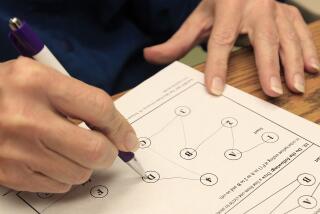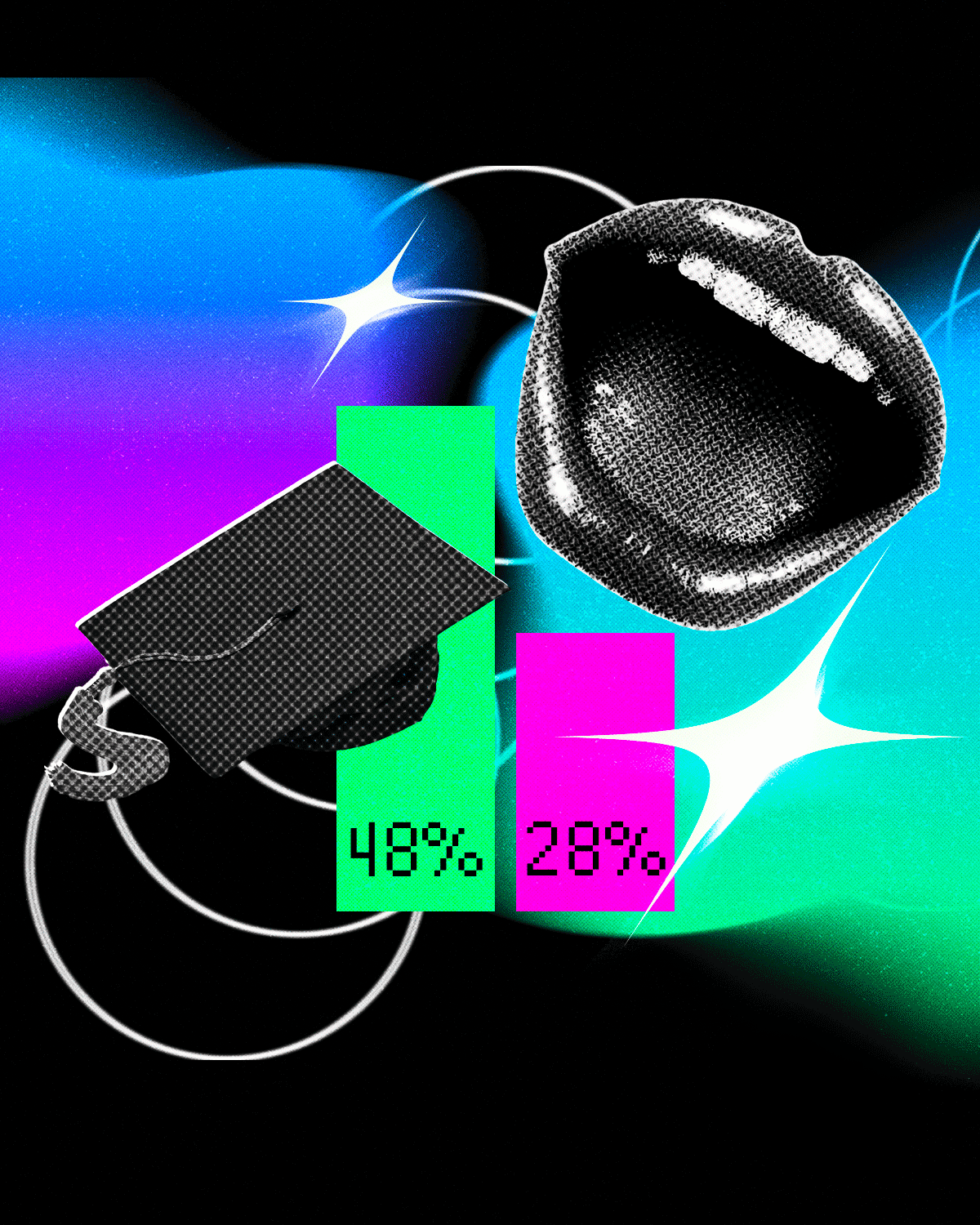1 in 20 Americans Is Not Literate, a National Survey Suggests
- Share via
BALTIMORE — More Americans are getting college degrees than they were about a decade ago, but skills in reading and analyzing data among the well-educated have dropped significantly, according to a national report on literacy released Thursday.
When adults with higher-education degrees were asked to compare the viewpoints in two newspaper editorials, for example, or interpret a table about blood pressure, less than half could do it successfully.
“I think these results are really unexpected,” said Mark Schneider, the U.S. commissioner of education statistics. A former university professor, Schneider was particularly concerned about the results.
“I think it is a wake-up call to the research and university community,” he said. He expects further analysis to show whether the decline in high-level skills in the college-educated population is among recent graduates or those who have been out of school five to 10 years.
The report said that one in 20 Americans is not literate and that 29% of the population has only basic reading and computing skills.
The adults deemed illiterate included people who may be fluent in Spanish or another language but cannot comprehend simple English text.
“Eleven million people is an awful large number of folks who are not literate in English, and therefore are prevented access to what America offers,” Russ Whitehurst, director of the Institute of Education Sciences at the Education Department, told Associated Press.
Two positive findings of the survey showed that black people were making significant gains in both reading and math and that the black population as a whole was reaching higher levels of education.
The National Assessment of Adult Literacy interviewed 19,000 people 16 and older in their homes. They were asked to read prose, do math and find facts in documents.
The study was designed to assess not whether people can read a novel, but whether they are competent in the skills they need to be productive citizens. Participants were asked to add numbers on a bank slip, identify a place on a map or read directions for taking a medication.
The study was done by the National Center for Education Statistics, part of the U.S. Department of Education.
Among the most significant findings is that among adults who have taken graduate courses or have graduate degrees, 41% scored as proficient, compared with 51% a decade ago. Proficiency is measured by the ability to read lengthy, complex abstract texts and analyze information in documents.
Participants’ performances were scored as below basic, basic, intermediate or proficient.
Schneider, who presented the results in Washington, said he was unsure what caused the decline in skills among people with higher-education degrees.
Many state universities, he said, now offer a more relaxed admissions policy, which accepts almost all high school graduates. In addition, colleges and universities are taking in a more diverse population that may have language or cultural challenges. A third possibility, he said, is that colleges “may not be doing the job as effectively as they could be.”
Nationally, Hispanics showed a significant decline in scores, explained by an increase in the number of older immigrants who are entering the nation. Forty-four percent of Hispanics were not considered literate in 2003, compared with 35% in 1992.
Men also seem to be losing ground compared with women, whose literacy levels are on the rise. Women’s average computing and math skills grew by 10 points in the decade. Men’s remained the same.
More to Read
Sign up for Essential California
The most important California stories and recommendations in your inbox every morning.
You may occasionally receive promotional content from the Los Angeles Times.










